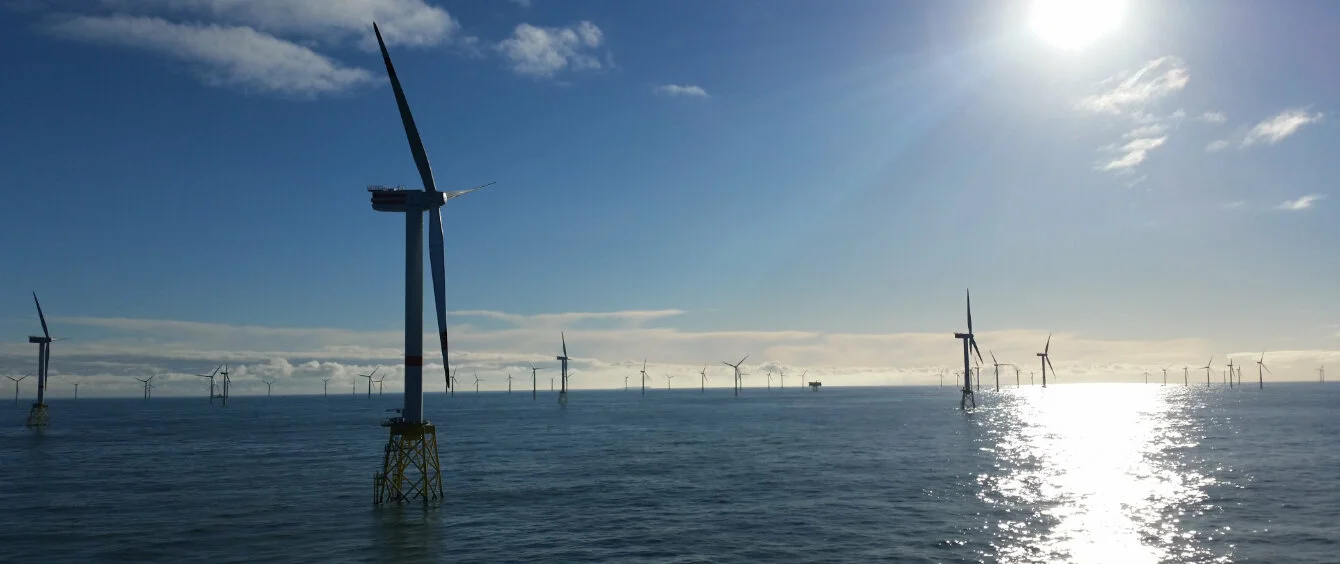Digitisation of society is increasingly shifting our lives onto the Internet. This drives up corporate demand for electricity at tech heavyweights the likes of Google, Facebook and Amazon as their data centres consume enormous amounts of power. As reported earlier by en:former, it is precisely due to their success that businesses are facing the daunting task of reducing their carbon dioxide emissions. To this end – and to achieve self-imposed climate goals – companies in the digital realm and beyond increasingly source climate-friendly electricity from renewables based on long-term supply contracts known as power purchase agreements (PPAs)
Such a contract was recently signed by RWE Renewables, Facebook and the Tennessee Valley Authority (TVA). These project partners forged an alliance to supply a data centre in Tennessee with clean energy from 2023 onwards. For this purpose, they are building a 150-megawatt (MW) solar farm in Shelby County. Facebook will use 110 MW of this capacity to operate a data centre – a concept that is becoming increasingly common. This is one example of the record level of PPAs concluded last year, as shown in a current report by research and analysis platform BloombergNEF (BNEF).
Electricity supply contracts break global volume record
According to the report, businesses in 2020 signed PPAs accounting for 23.7 gigawatts (GW) – an all-time high eclipsing the 2019 mark by nearly 20 percent. Contract volume has been rising steadily since 2016 and has since grown nearly six-fold.
As reflected on the chart, green energy contracts are gaining significance the world over. The USA clearly remains the biggest market, but is less dominant than in past years. In 2020, US corporations secured 11.9 GW of clean power via PPAs, less than in 2019 (14.1 GW). Fewer clean energy contracts were signed especially in the first half of the year, which was strongly affected by the pandemic. Volume in North, Latin and Central America totalled 13.6 GW.
Rising importance of PPAs in Europe
Clean energy contracts are gaining significance above all in Europe. Based on the BNEF report, capacity contracted via PPAs advanced from 2.6 GW to 7.2 GW in the Europe, Middle East, Africa (EMEA) region. In Spain alone, companies announced PPAs for no less than 4.2 GW of clean power – a huge gain compared to the 300 megawatts recorded in 2019. Thanks to strong natural resources and experienced project developers, solar and wind ventures on the Iberian Peninsula could be operated at very favourable and competitive costs.
Corporations in the Asia-Pacific (APAC) region also secured a record amount of clean energy, announcing contracts for some 2.9 GW of solar and wind power. Taiwan established itself as a major market for green PPAs, posting a volume of 1.25 GW last year. Many manufacturers serving the world market from the island intend to decarbonise production, in part because this is what their customers are calling for. The situation is similar in South Korea, where the report sees an important market for clean energy contracts in the future.
Biggest PPA electricity buyers: Amazon followed by Google
The BNEF analysis also reveals that over 130 companies from various sectors concluded PPAs in 2020. Tech corporations are by far the volume front-runners. For instance, Amazon alone signed green energy contracts accounting for a capacity of 5.1 GW. This pushes the mail order giant’s total volume up to 7.5 GW, enabling it to leapfrog Google to first spot among businesses in terms of PPA volume since 2007.
PPAs’ appeal is understandable. For one, tech and Internet corporations rank among the world’s largest power consumers. According to the report, annual electricity usage by Amazon, Google, Microsoft, Facebook and Apple exceeds 45 terawatt hours (TWh) – more than the consumption of New Zealand in an entire year. Moreover, in view of their substantial demand for energy, ambitious climate goals have been set by all these corporations, some of which have raised the bar even higher.
Amazon, the world’s biggest online mail-order company, plans to procure some 80 percent of the electricity it consumes from renewable sources by as early as 2024. In 2030, the Seattle-based e-commerce market leader wants to source 100 percent green energy. The entire organisation aims to be carbon neutral years later. With clean energy purchases of 6.6 GW, Google now ranks second. The world’s largest search engine provider has pledged to run all its data centres with electricity from renewable resources such as water, wind and sun. Third spot is occupied by Facebook (5.9 GW). French oil giant Total (3 GW) is the only non-tech player in the top four.
PPAs drive energy transition
The rapid increase in corporations pledging to use clean energy shows the huge potential harboured by this market. Kyle Harrison, the study’s chief author, wagers a promising outlook despite the complications experienced in 2020: “Last year, nearly all the companies were faced with a momentous wave of adversity, in particular lost revenue. Nevertheless, more than 65 new businesses pledged under the global RE100 Initiative to use 100 percent clean energy in the long term.”
The initiative has expanded to include over 230 influential enterprises. “Companies have more access to affordable renewable energy than ever before,” says Harrison. PPAs benefit all stakeholders: In an increasingly digitised world, major corporations can increasingly meet their steadily growing need for electricity with clean energy. In exchange, this requires expansion and investment in renewables and contributes to achieving climate goals.
